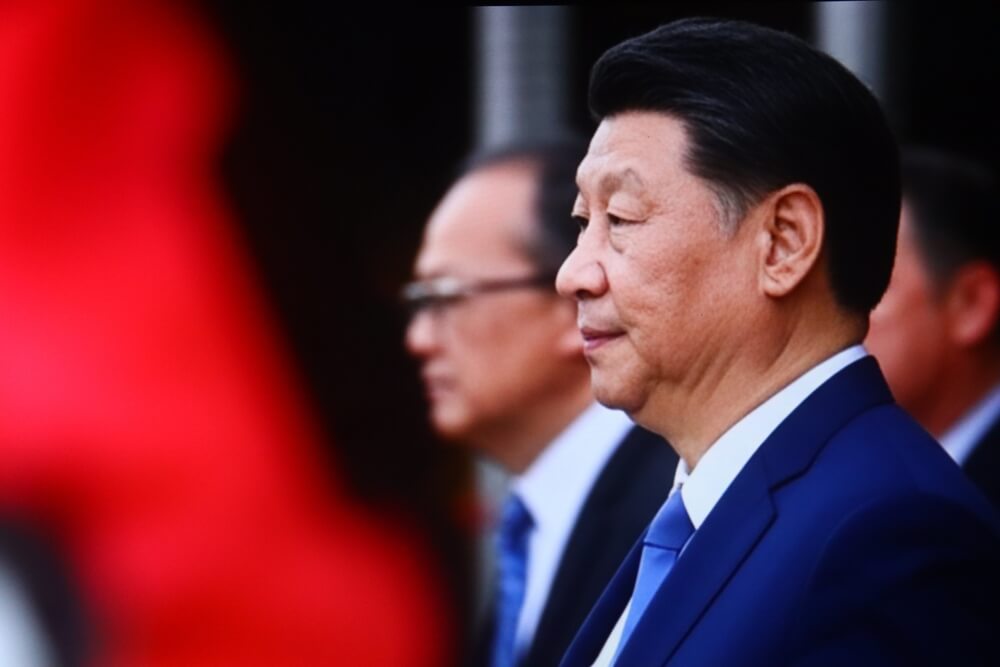The most recent trade talks between the United States and China in Geneva and London provided little more than temporary relief in the conflict between the world’s two largest economies.
Despite US President Donald Trump’s efforts to tout the stopgap measures as a “deal” that benefits America, China reads the scoreboard differently – and believes it is winning.
From its vantage point, it has weathered the storm and emerged more confident, more self-reliant, and more convinced that its long game is paying off.
Since the grinding Sino-American trade war began in 2018, China has crafted a playbook that blends defensive and offensive strategies to mitigate its vulnerability to tariffs and sanctions.
On the defensive front, China has rerouted trade flows, developed hedge against the dollar-based global financial system, and accelerated investment in indigenous technologies.
It has also made a concerted push to boost domestic consumption, although not as an end in itself but as a means to reinforce strategic sectors like artificial intelligence applications and green tech.
On offense, China has tightened export controls and demonstrated a readiness to retaliate swiftly and surgically.
Chinese authorities’ response to the second Trump administration’s tariff threats and escalations reflects this tactical flexibility and steadfast resolve.
Over recent months, China has hit back almost immediately, taken a hard line in negotiations, and generally refused to be cowed. It is not merely reacting to pressure; it is redefining the US-China trade conflict on its own terms.
Inflicting pain on American businesses
Meanwhile, the Trump administration has – perhaps unwittingly – exposed the dependency of US industries on China for rare-earth minerals and other inputs.
The disruption to bilateral trade triggered by Trump’s tariffs has left US manufacturers scrambling and overpaying for materials.
In implementing rare-earth export controls in early April, the Chinese government has discovered a powerful tool for inflicting pain on American businesses.
Trump’s erratic tariff theatrics have handed the Communist Party of China (CPC) a propaganda win (though standing up to Trump is not as politically popular in China as many outsiders believe) and, more importantly, a strategic advantage.
China is willing to risk a trade war that the United States may lose, and it would rather decouple than kowtow to Trump
For the many Global South governments that are skeptical of the Western development model, China’s resilience in the face of US pressure lends credence to President Xi Jinping’s claim that the world is undergoing “great changes not seen in a century.”
From the Chinese government’s perspective, the Trump administration’s determination to decouple the two economies at any cost is the culmination of American efforts to stifle China’s rise.
While China does not want a trade war or to decouple, it is willing to risk a trade war that the United States may lose, and it would rather decouple than kowtow to Trump.
Building resilience and self-reliance
That is why Chinese leaders, businesspeople, and entrepreneurs have focused on building resilience and self-reliance, which means, first and foremost, reducing dependence on US markets and technology.
While nothing can compare to US consumer demand and technological innovation, Chinese firms now view their chances of competing in the US and accessing its high-tech products as close to zero, and operate accordingly.
Huawei’s remarkable comeback following US sanctions and restrictions is illustrative. Now ByteDance is facing similar pressure, as Trump tries to force it to sell TikTok, its video-sharing app, to American buyers.
Shrinking exports might end up benefiting China by accelerating industrial consolidation
Of course, Trump’s tariffs sting, and China’s leaders know it. They could hit China’s low-value-added light manufacturing – such as apparel and footwear – particularly hard.
But shrinking exports might end up benefiting China by accelerating industrial consolidation, forcing laggards out of the game, and improving efficiency.
True, unemployment could rise. But in a country where factories are already highly automated, the political fallout is likely to be muted.
Perhaps more importantly, China has withstood worse. For example, market-oriented reforms and restructuring led to more than 76 million workers being laid off between 1992 and 2002. A new wave of layoffs is unlikely to shake the CPC’s grip on power.
The economy’s structural flaws
The longer-term impact of Trump’s tariff policies is more profound. Just as the crackdown on Huawei and ZTE turbocharged China’s tech ambitions, renewed geoeconomic restrictions have only made it easier for CPC leaders to rally the public against perceived foreign humiliation.
The brief pause in tariffs, which merely provides exporters with a window to rush out goods rather than laying the foundation for a détente, has not changed this sentiment.
 China’s high-stakes bet on developing domestic technology, first made when Trump began his trade war in 2018, is not a guaranteed win - Xi Jinping
China’s high-stakes bet on developing domestic technology, first made when Trump began his trade war in 2018, is not a guaranteed win - Xi Jinping
Given that Trump’s tariff shock coincides with the final year of China’s 14th Five-Year Plan, policymakers have tried to prop up domestic consumption and support small businesses with fiscal and monetary stimulus.
But these measures will not fix the economy’s structural flaws – namely, the low household consumption rate. Such a rebalancing will likely take years.
In the meantime, as the external environment deteriorates, the CPC leadership – dominated by members with engineering backgrounds – and the country’s industrialists will continue to pour resources into advanced technology, especially AI-powered advanced manufacturing ecosystems, in the hopes of avoiding a productivity slump.
China’s high-stakes bet on developing domestic technology, first made when Trump began his trade war in 2018, is not a guaranteed win. But as the US tries to back China into a corner, few see another way out.
Zongyuan Zoe Liu, Senior Fellow for China Studies at the Council on Foreign Relations, is Adjunct Assistant Professor of International and Public Affairs at Columbia University’s School of International and Public Affairs.